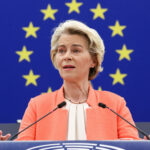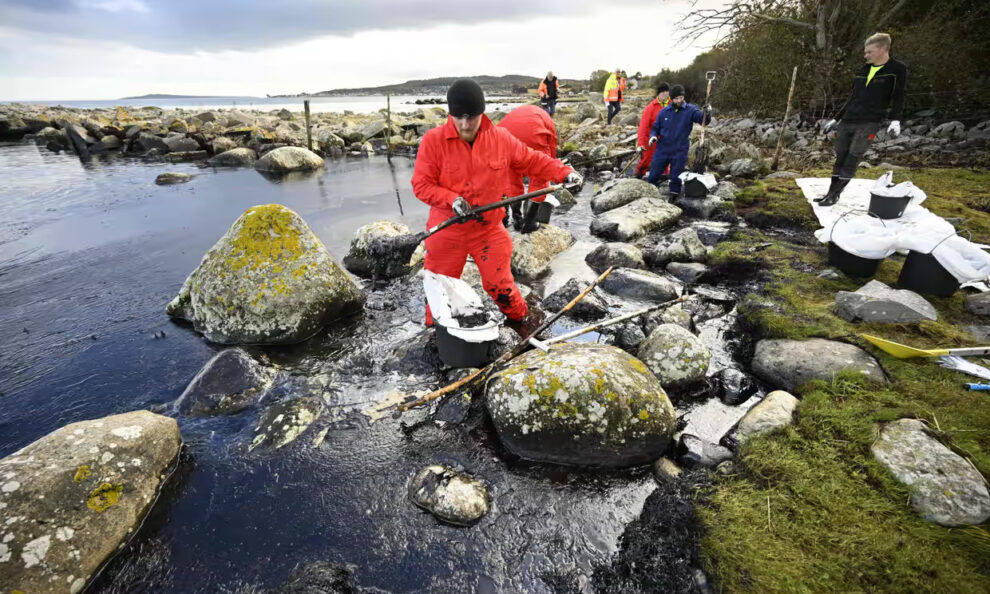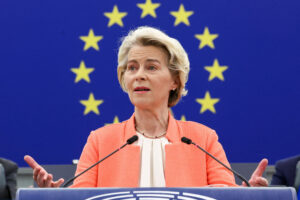The Baltic Sea faces “critical challenges” due to the climate crisis and degradation of biodiversity, a report has said, as Sweden’s coastguard battled to contain the impact of an oil spill off the country’s southern shore.
In the most comprehensive audit of its kind to date, experts at the Baltic Marine Environment Protection Commission (Helcom) said on Tuesday there had been “little to no improvement” in the health of the body of water between 2016 and 2021.
Fish stocks were at dangerously low levels, while pollution, land use and resource extraction continued to put pressure on the sea, the report said.
On Monday the Swedish coastguard extracted about 20 cubic metres of oil from the Baltic, bringing the total to about 50 cubic metres, after a ferry ran aground three times off Hörvik in southern Sweden.
The coastguard said on Tuesday it hoped the Marco Polo would be salvaged on Wednesday and taken to a port in Karlshamn to prevent a risk of further oil spills.
Surrounded by nine countries including Sweden, Finland, Denmark and Russia, the Baltic’s relatively shallow, low-saline, brackish enclosed water makes it a unique marine environment. These properties also mean it is especially vulnerable to pollution and changing environmental conditions.
The State of the Baltic Sea 2023 report found that despite efforts to improve its environment, overall conditions had not improved while some indicators had worsened.
Jannica Haldin, the deputy executive secretary of Helcom and coordinator of the report, said: “The findings serve as a sobering reminder that the Baltic Sea faces critical challenges stemming from human activities. The importance of transboundary cooperation, a shift towards genuinely environmentally sustainable practices and long-term commitment cannot be overstated.”
Human activities including pollution, overfishing and habitat destruction had affected the ecosystem, leading to an overall decline in biodiversity, the report found.
Eutrophication – a largely human-made phenomenon in which excess nutrients such as nitrogen and phosphorus cause algae blooms – was also a problem, it said.
The Baltic’s poor environmental status was also affecting the profitability of fisheries and tourism, the report found.
There were some bright spots. Reductions in nutrient inputs and hazardous substances, as well as work on biodiversity and conservation, were found to have shown signs of success in some parts of the Baltic and several former pollution hotspots were removed from the latest assessment. The share of marine protected areas in the region was found to be increasing.
But the climate crisis was increasingly taking its toll, the report said, resulting in reduced ice cover, more extreme weather and rising water temperatures.
A Baltic Sea action plan, devised by Helcom in 2021, calls for strengthened biodiversity, a reduction in environmental pressures and an improvement in the overall health of the Baltic’s ecosystem.
“Still, the current assessment results suggest that the recovery rate for biodiversity today is too slow,” Haldin said. “The deteriorated status presented in this report is directly linked to the activities and priorities of us as a society.”
She added: “Ensuring that the Baltic Sea ecosystem maintains and improves its function is entirely dependent on how well we can manage our activities to ensure that they are truly sustainable and enhance the resilience of the ecosystem, both in the near future and long term.”
Source : The Guardian















